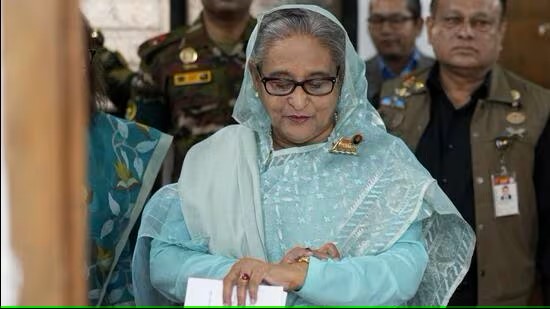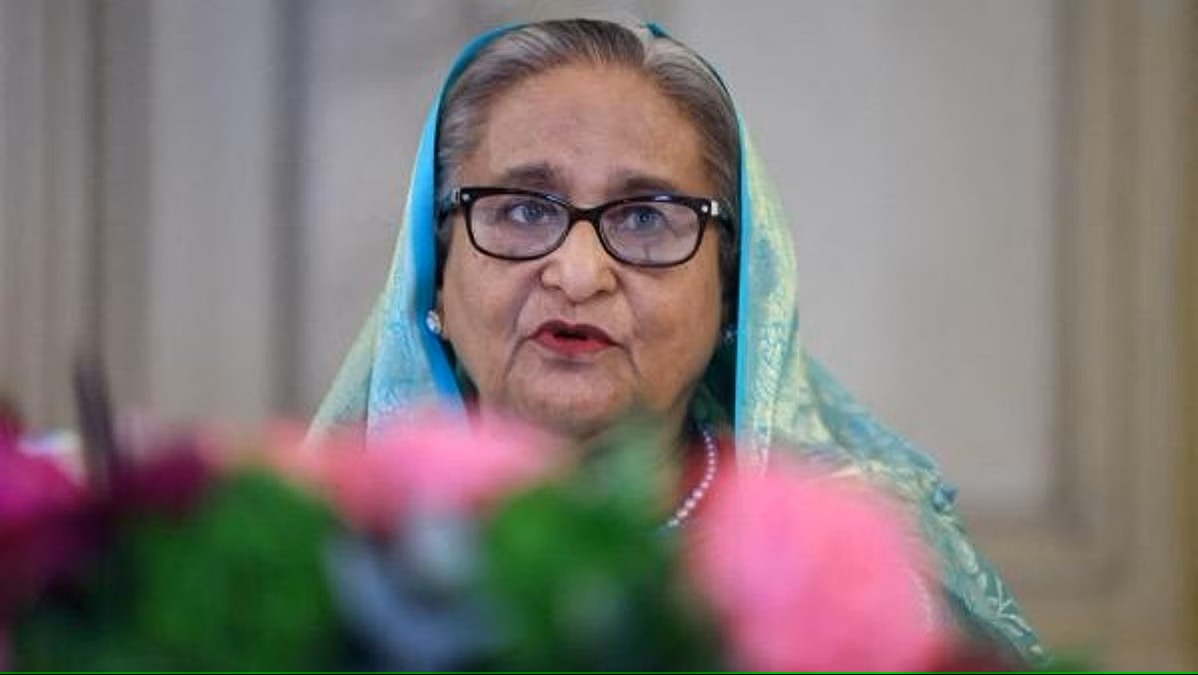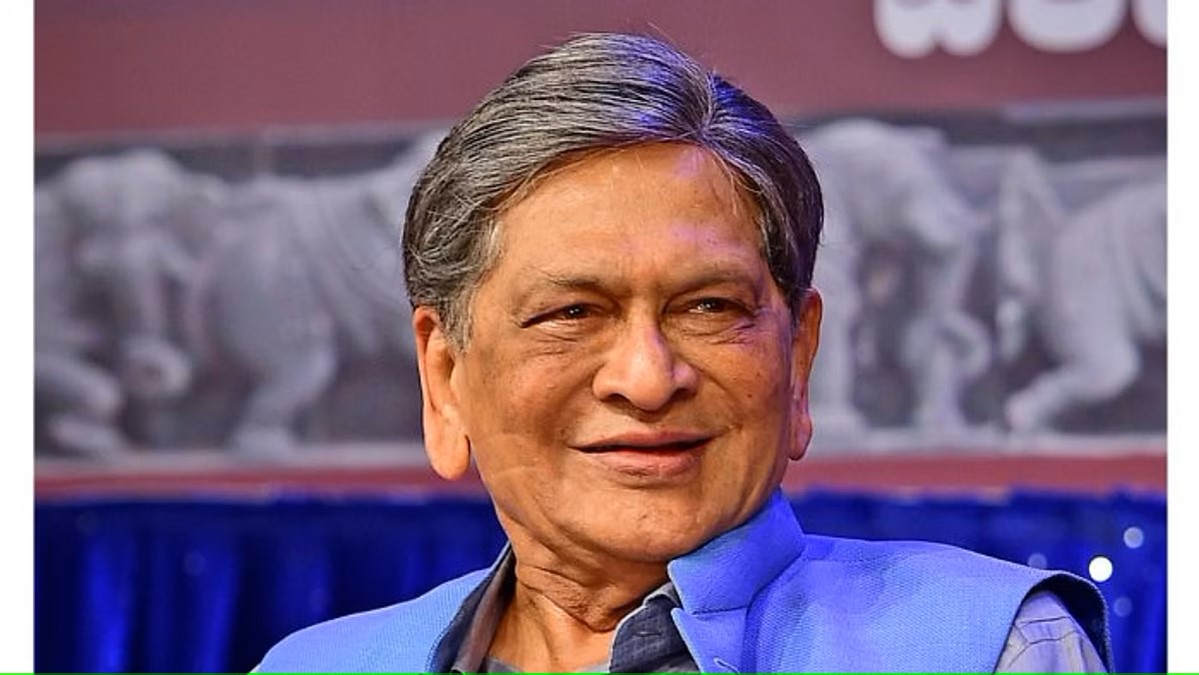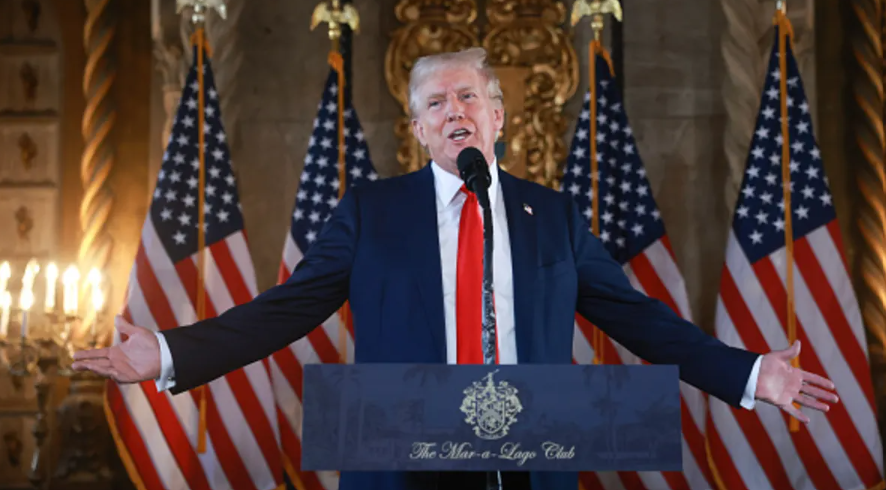Sheikh Hasina, the former Prime Minister of Bangladesh, has publicly accused Muhammad Yunus, the leader of the interim government, of perpetrating “genocide” and failing to protect Hindus and other minority communities. This statement was made during her first public address since stepping down from office in August and fleeing the country. Hasina, speaking in Bengali for nearly an hour, addressed her supporters virtually in New York during an event marking “Bijoy Dibos” or Victory Day, which commemorates Bangladesh’s victory over Pakistani forces in 1971.
 Hasina, who took refuge in India after being ousted due to widespread protests led by student groups, has long had a contentious relationship with Nobel laureate Yunus. She accused him of being the “main perpetrator of genocide” and of seeking to consolidate power. Additionally, she reiterated her previous allegations of corruption and money laundering involving the Grameen Bank, which Yunus founded.
Hasina, who took refuge in India after being ousted due to widespread protests led by student groups, has long had a contentious relationship with Nobel laureate Yunus. She accused him of being the “main perpetrator of genocide” and of seeking to consolidate power. Additionally, she reiterated her previous allegations of corruption and money laundering involving the Grameen Bank, which Yunus founded.
The former prime minister’s remarks come amid escalating tensions in Bangladesh, particularly regarding the treatment of religious minorities. Hasina claimed that during recent protests, members of minority communities, as well as Awami League leaders, were killed. She also described attacks on places of worship, including mosques, churches, temples, and Buddhist shrines. She criticized the persecution of Hindus, Buddhists, and Christians, mentioning that temples and shrines had been destroyed, and even referring to the arrest of Bangladeshi monk Chinmoy Krishna Das on sedition charges.
In her address, Hasina suggested there were plans to assassinate her and her sister, Sheikh Rehana, in a manner similar to the 1975 assassination of their father, Sheikh Mujibur Rahman, at the hands of army officers. She recalled a tense situation on August 5, when armed protesters gathered near her residence, Ganabhaban. She ordered her guards not to fire, despite the imminent threat, which forced her to leave the country.
In response to Hasina’s accusations, Yunus’s spokesperson, Shafiqul Alam, labeled Hasina a “mass murderer,” accusing her of overseeing brutal dictatorship during her rule. Alam also condemned Hasina for continuing to speak publicly, despite her record of alleged human rights violations.
The political tensions between Hasina’s Awami League and Yunus’s interim government have also strained relations between Bangladesh and India. Recently, protests by Hindu groups in India, especially in states bordering Bangladesh, have highlighted concerns over the persecution of religious minorities in Bangladesh. These protests were further fueled by the arrest of the monk and attacks on religious sites. Bangladesh’s foreign ministry has also summoned the Indian envoy to address the storming of its consulate in Agartala by protestors.
Yunus and leaders of the caretaker government have now hinted at seeking Hasina’s extradition, escalating the diplomatic standoff between the two neighboring countries.




